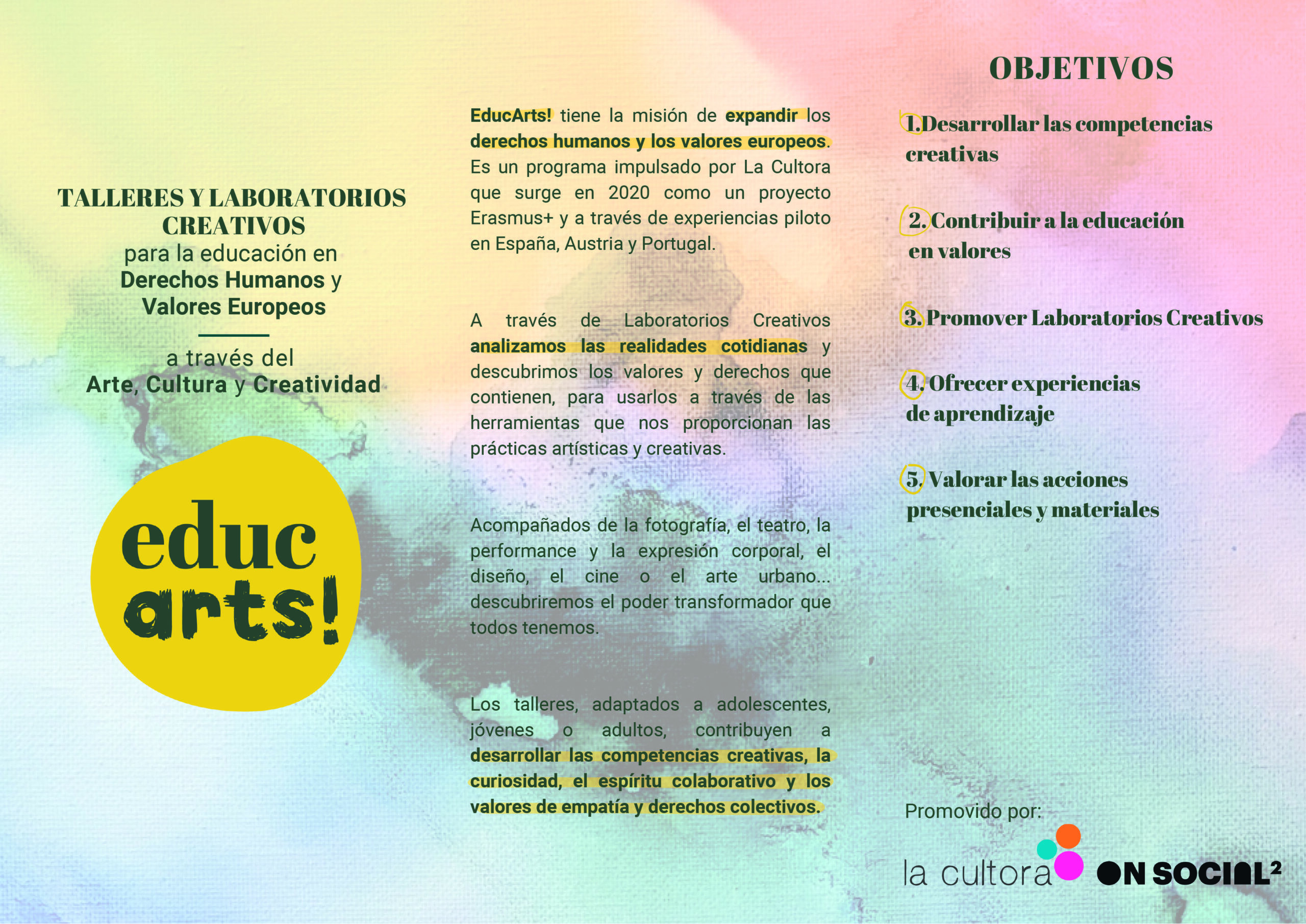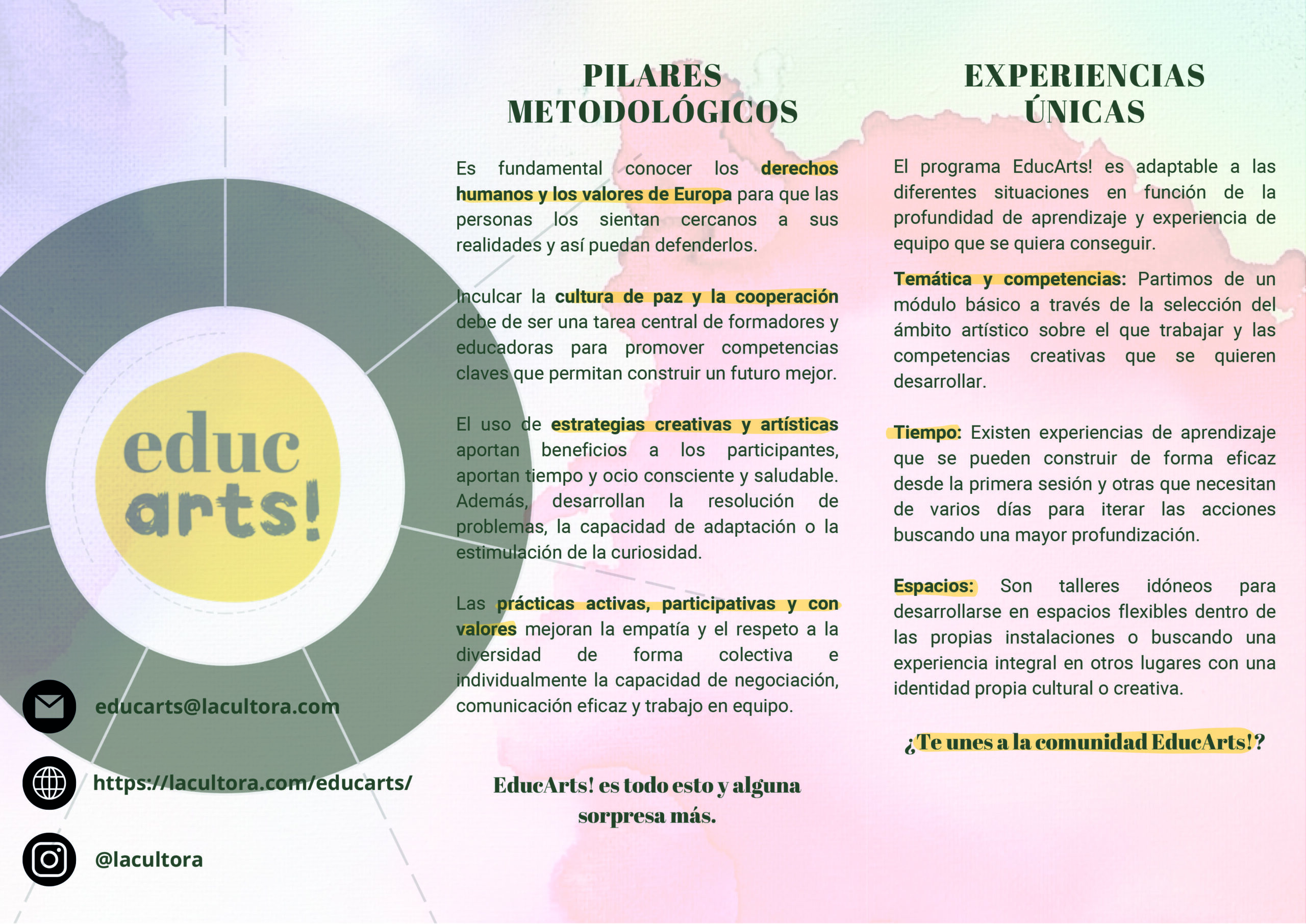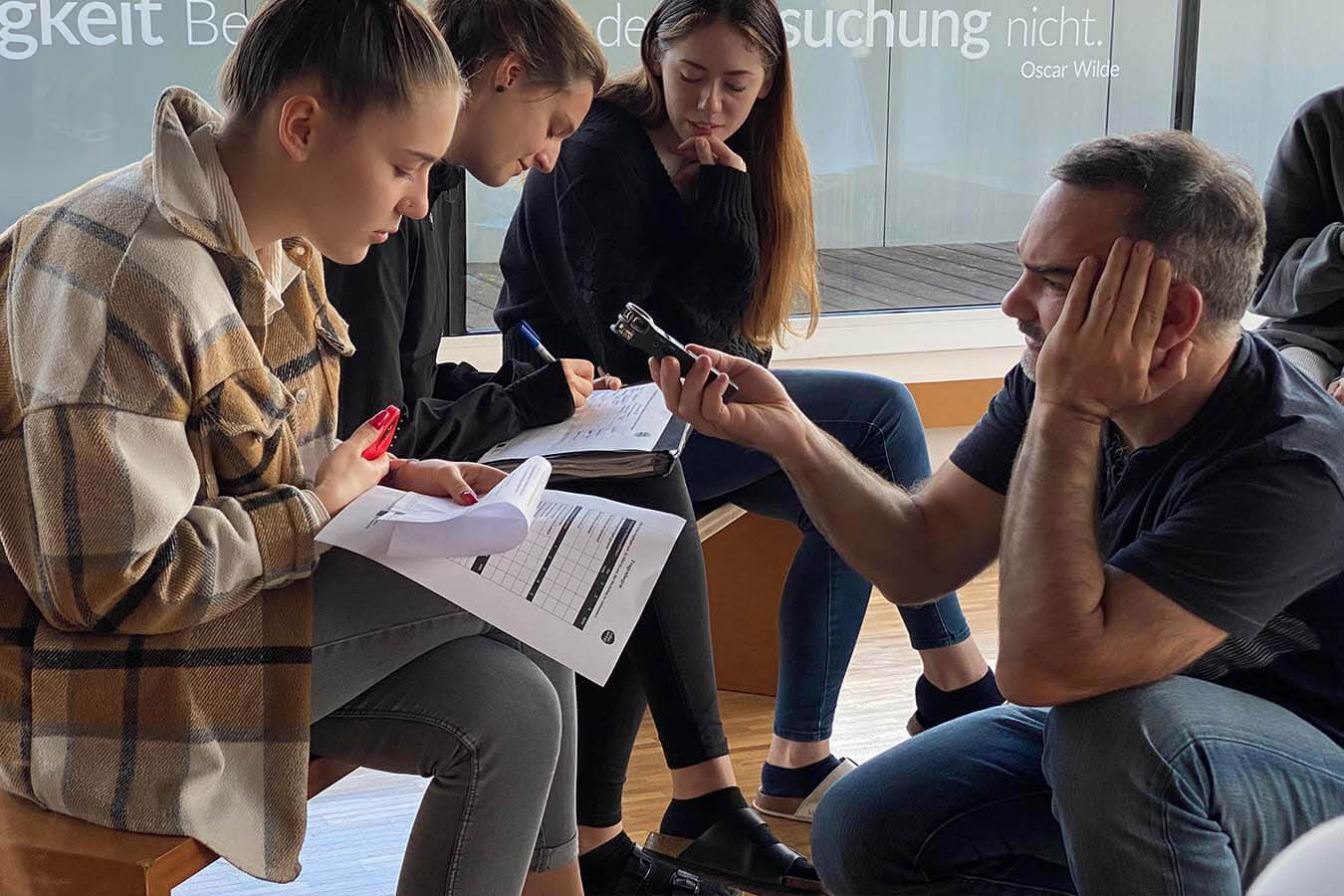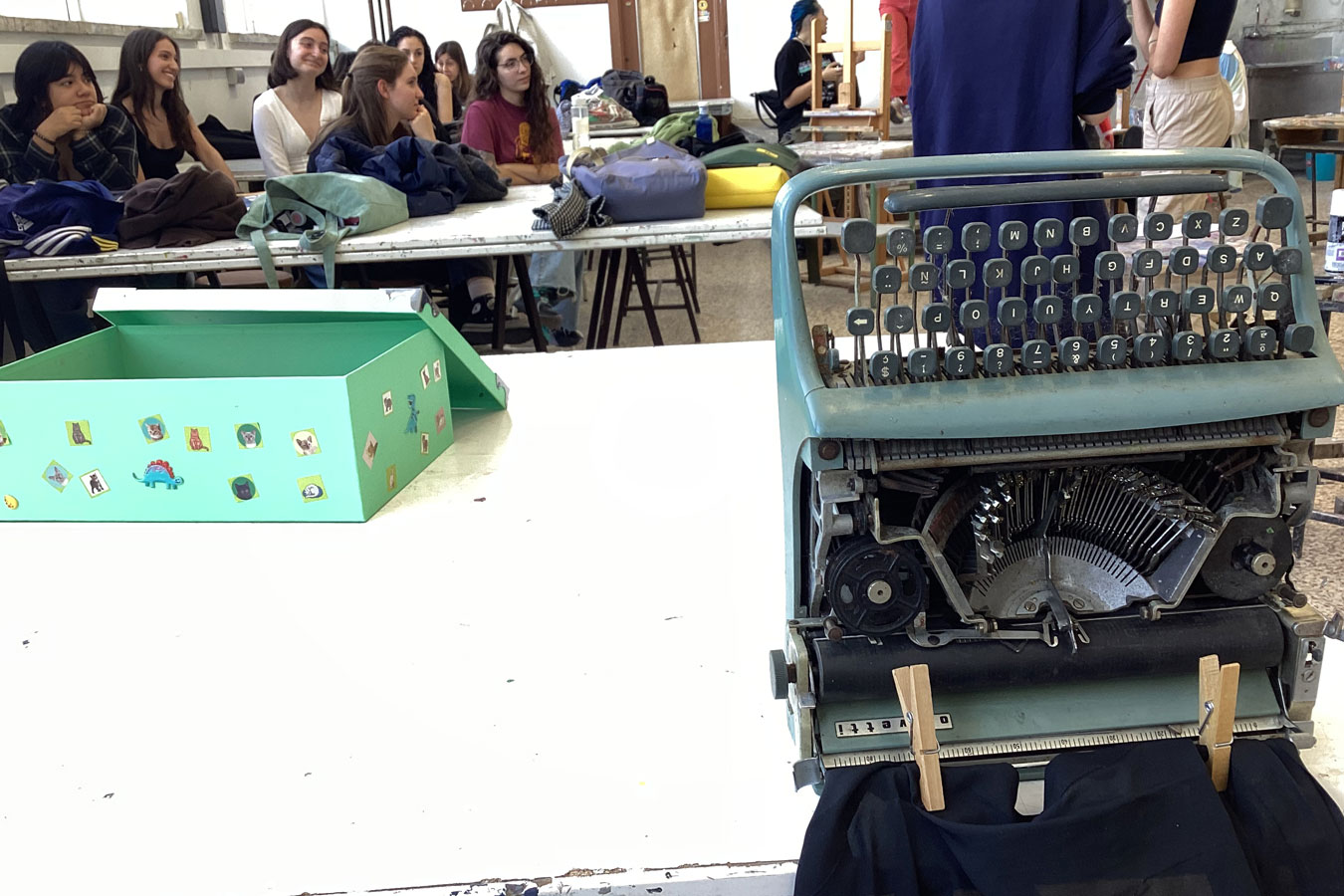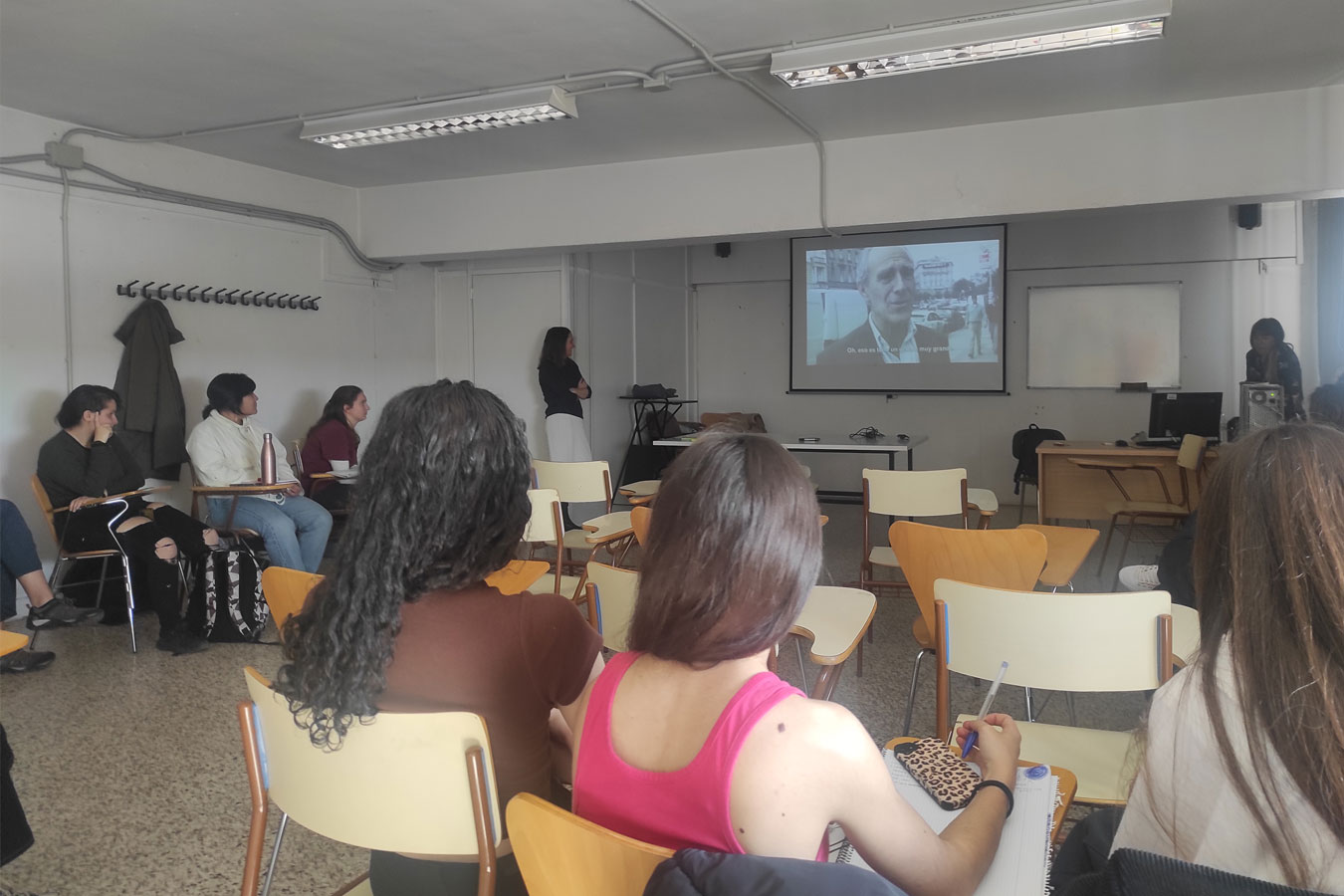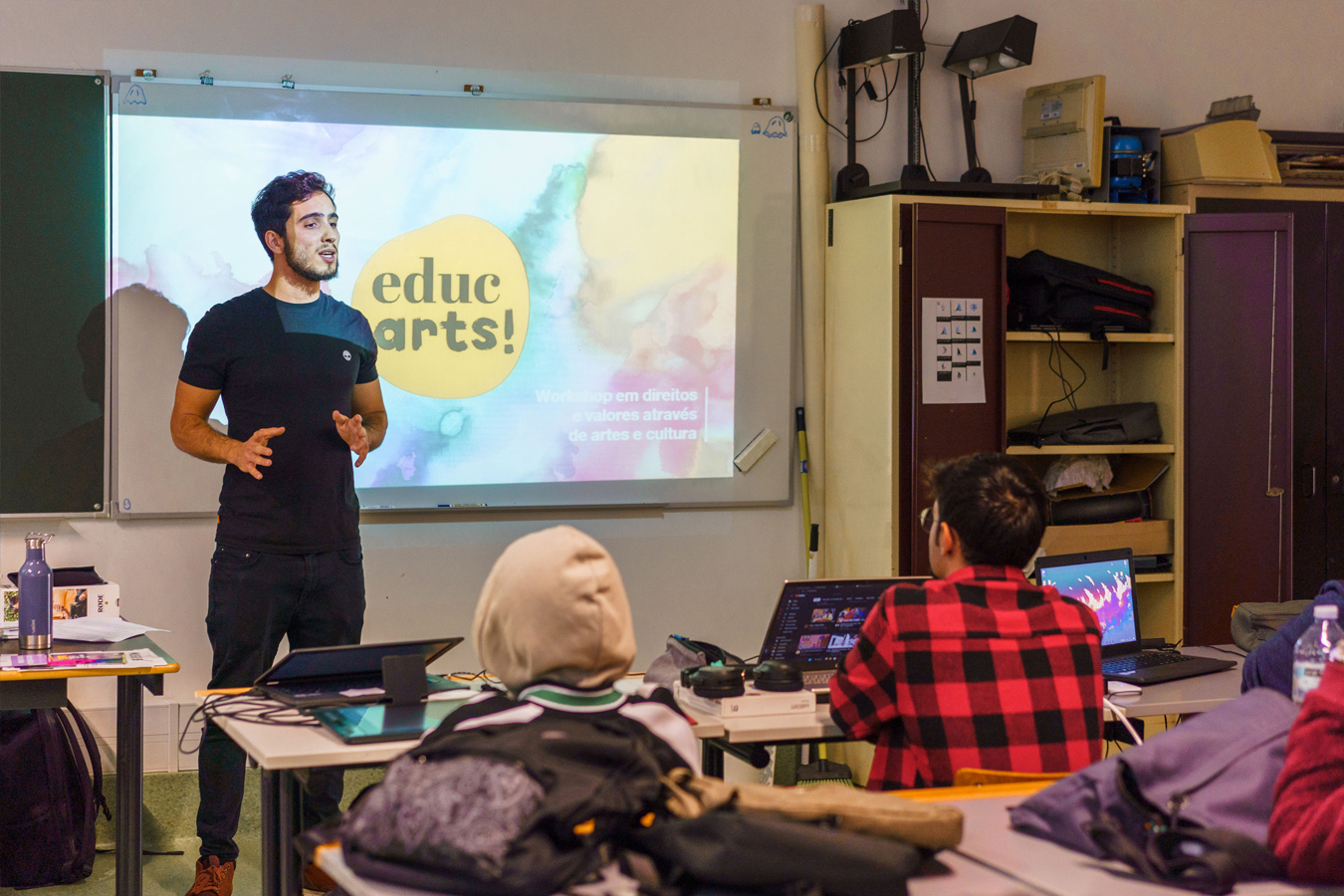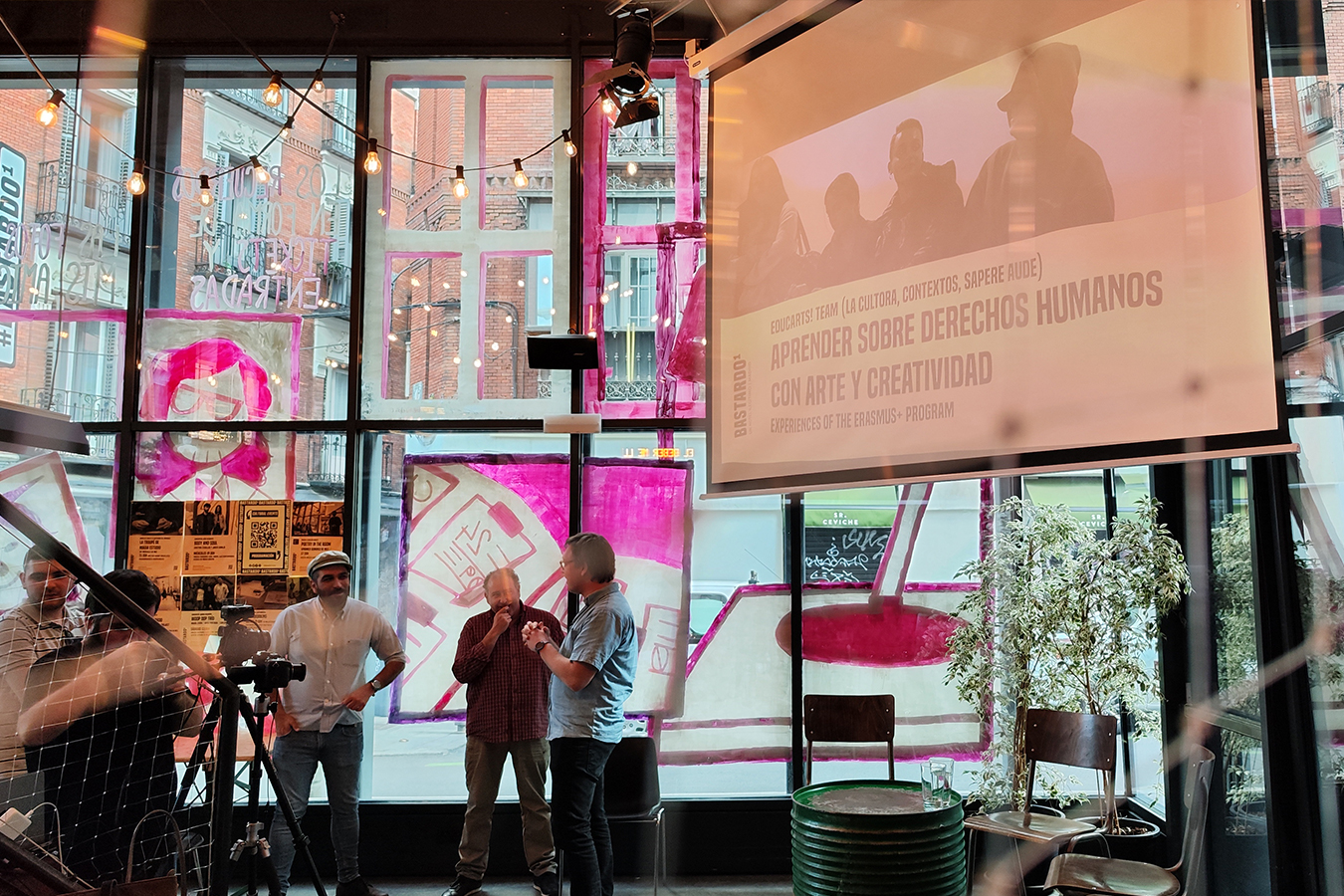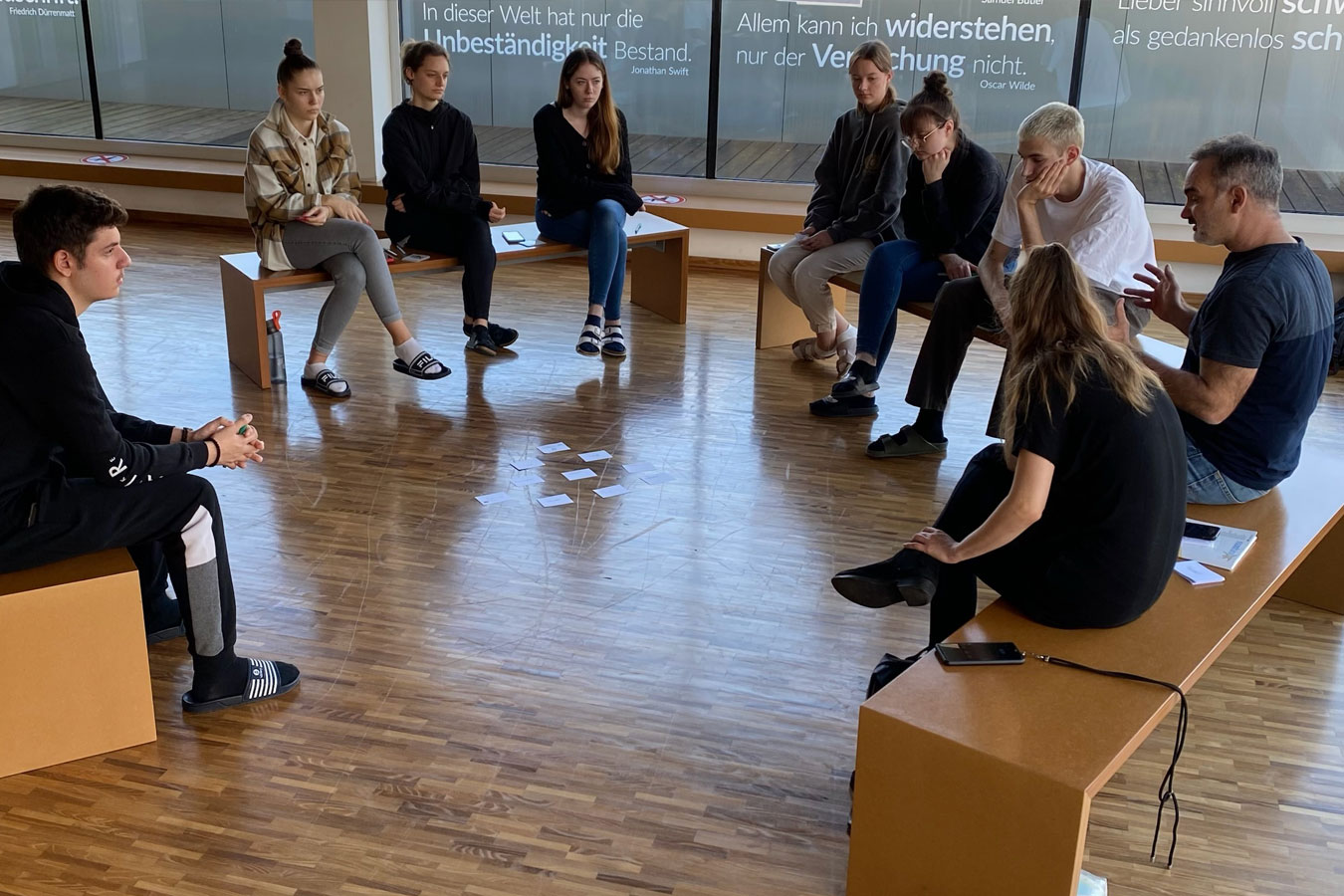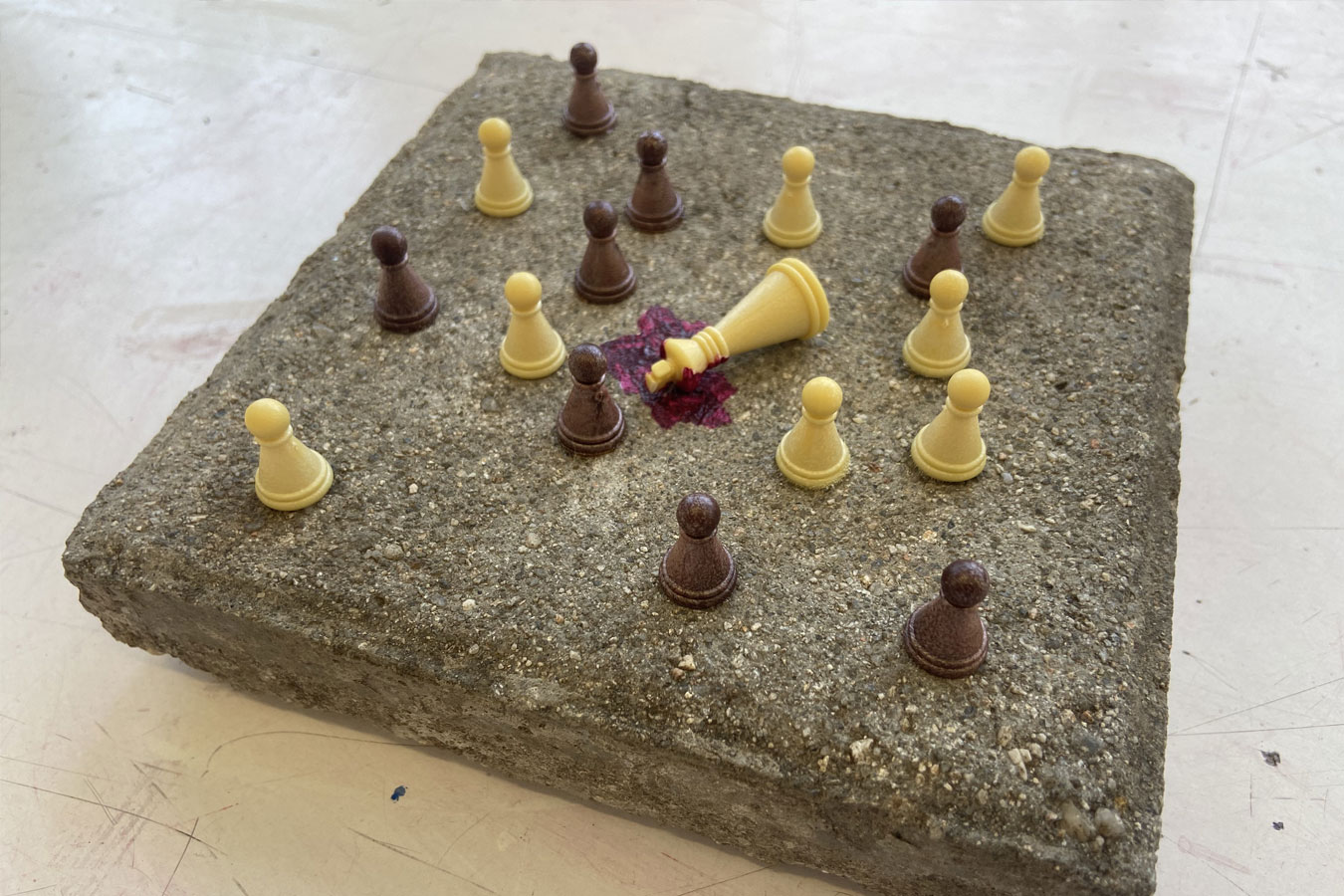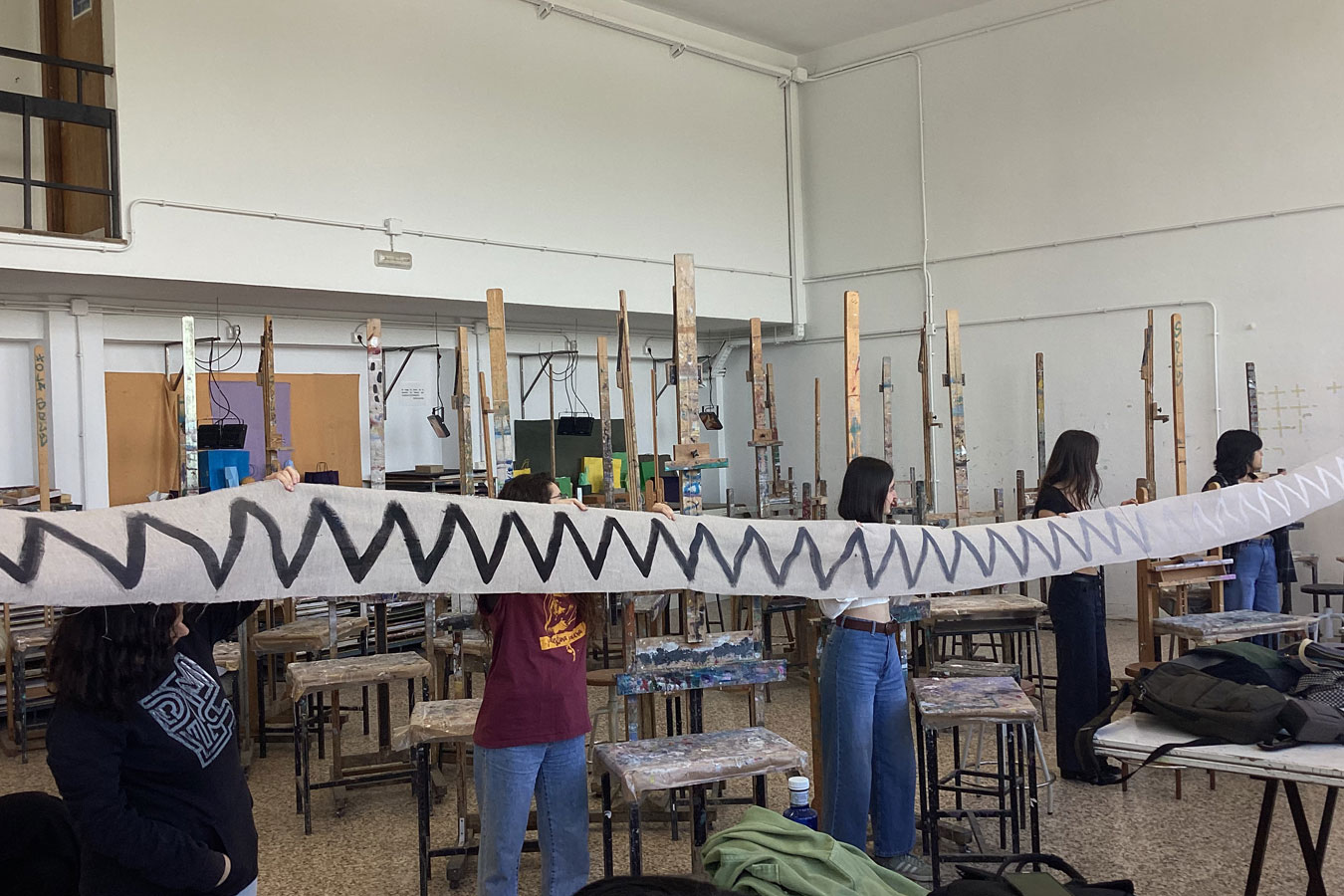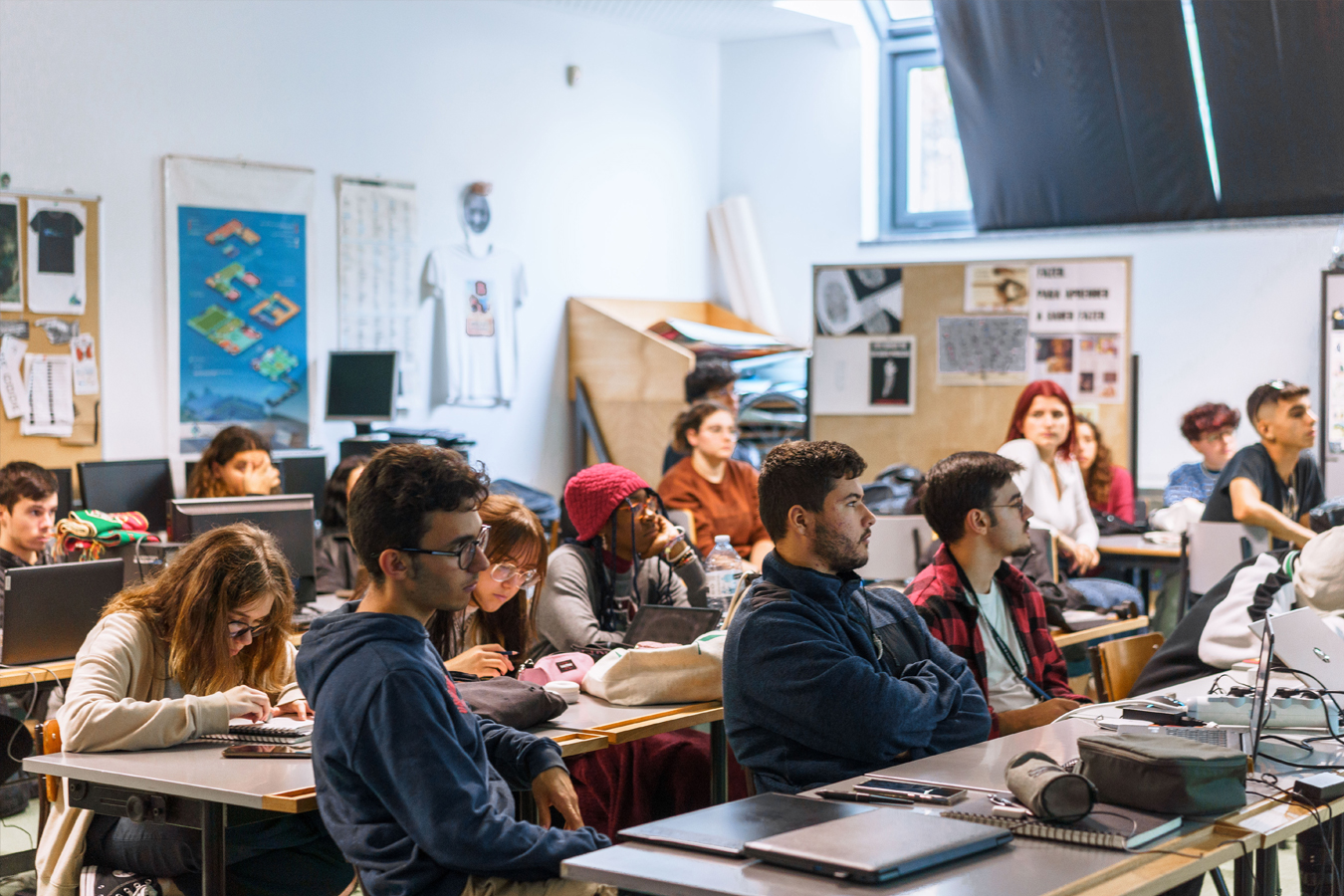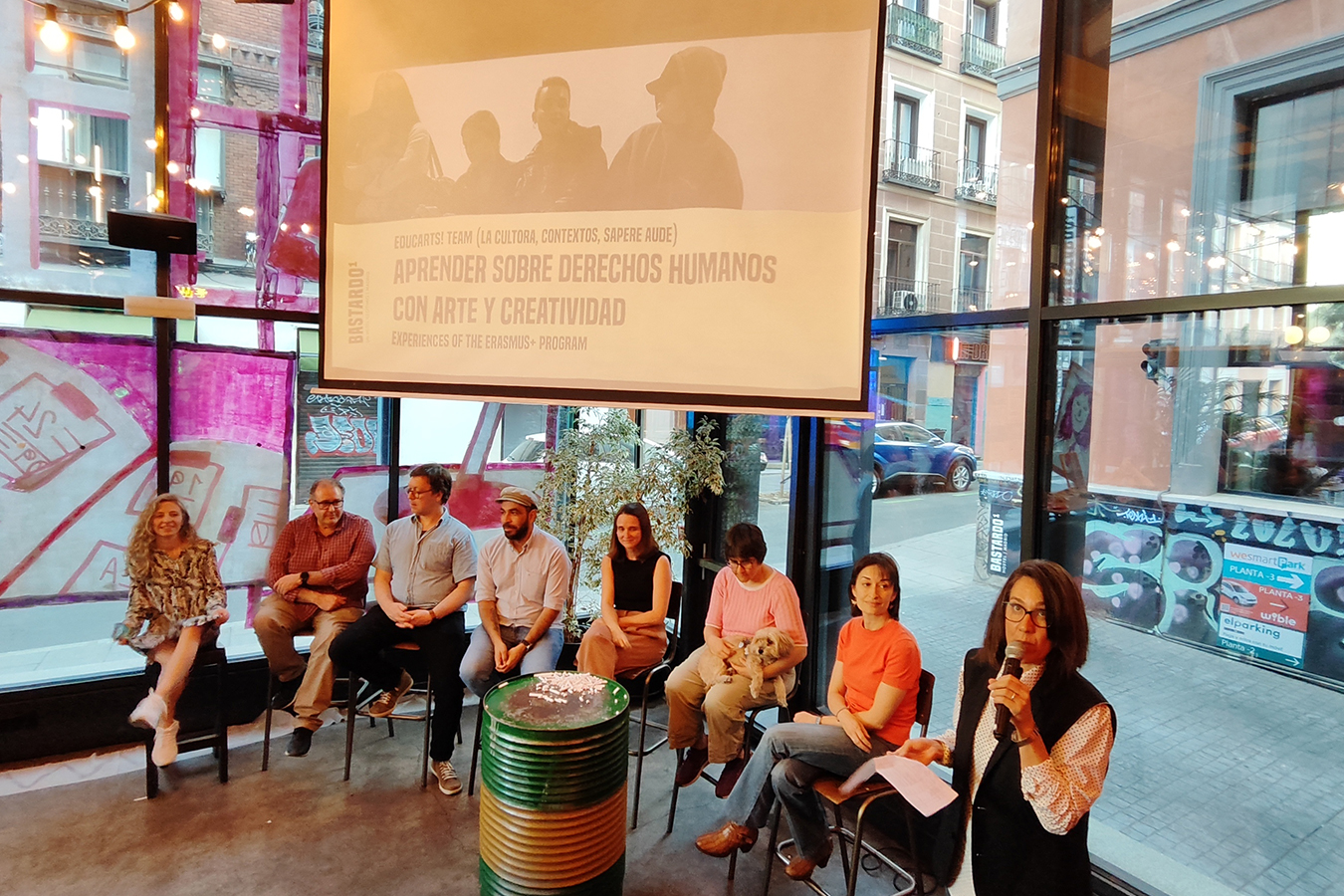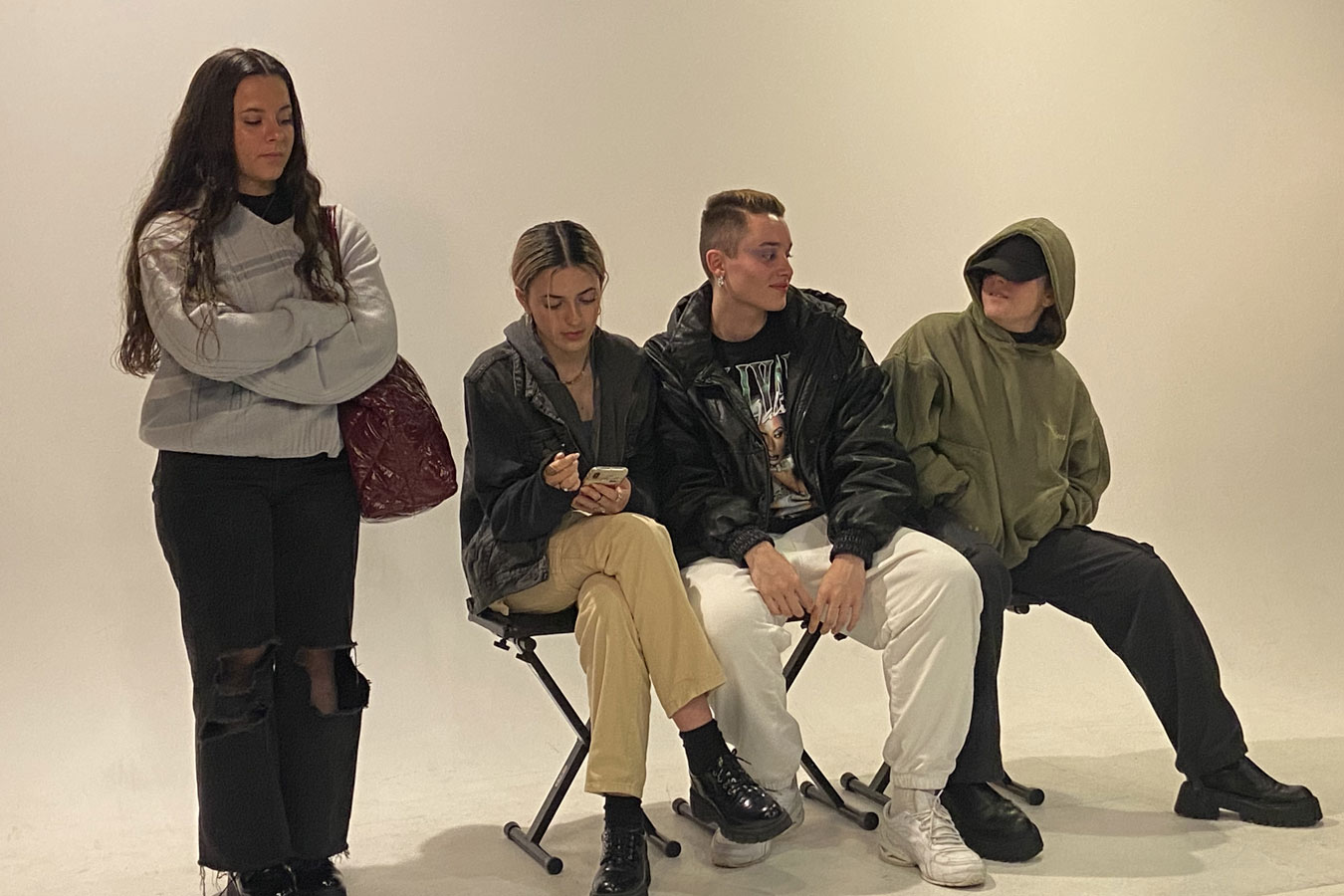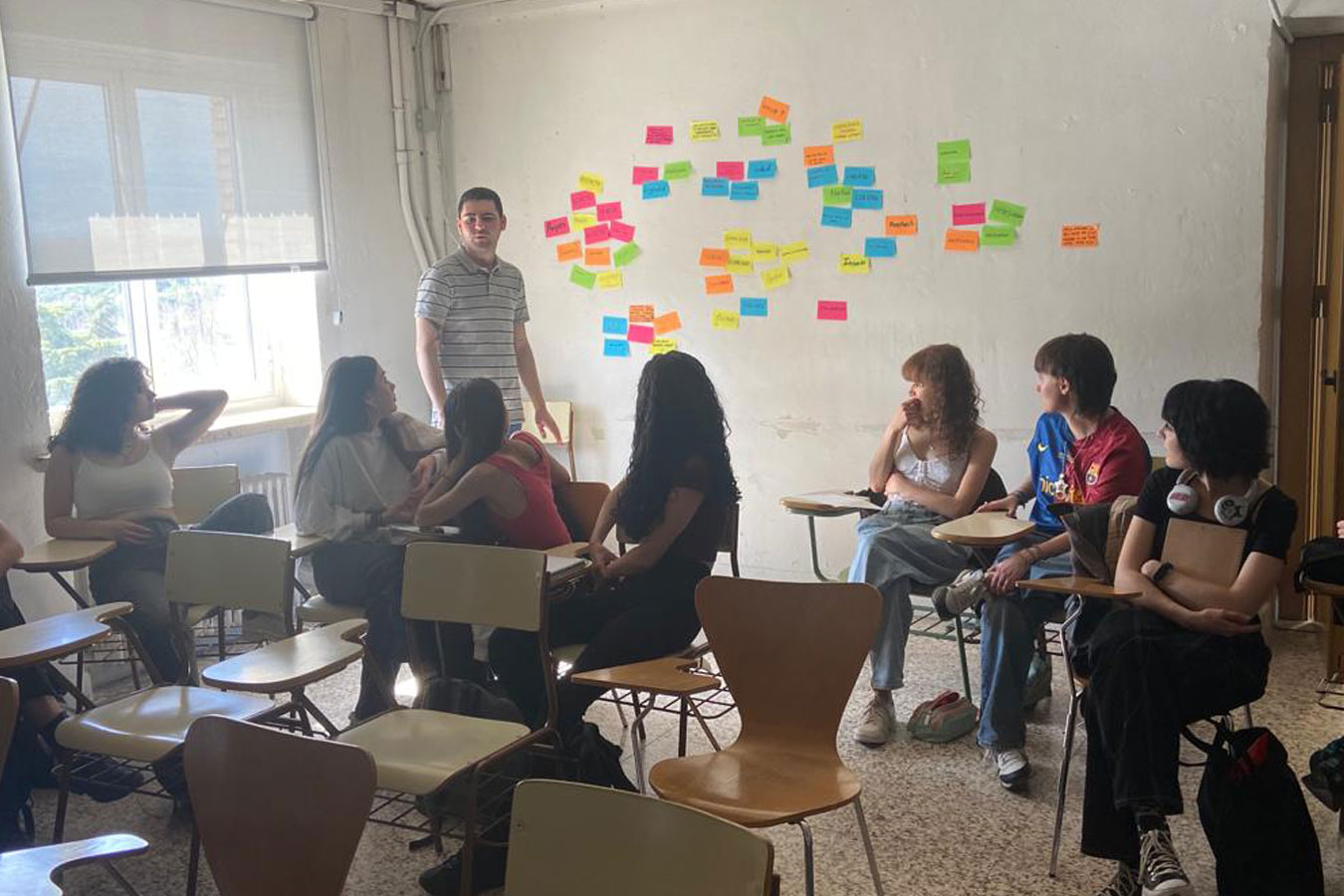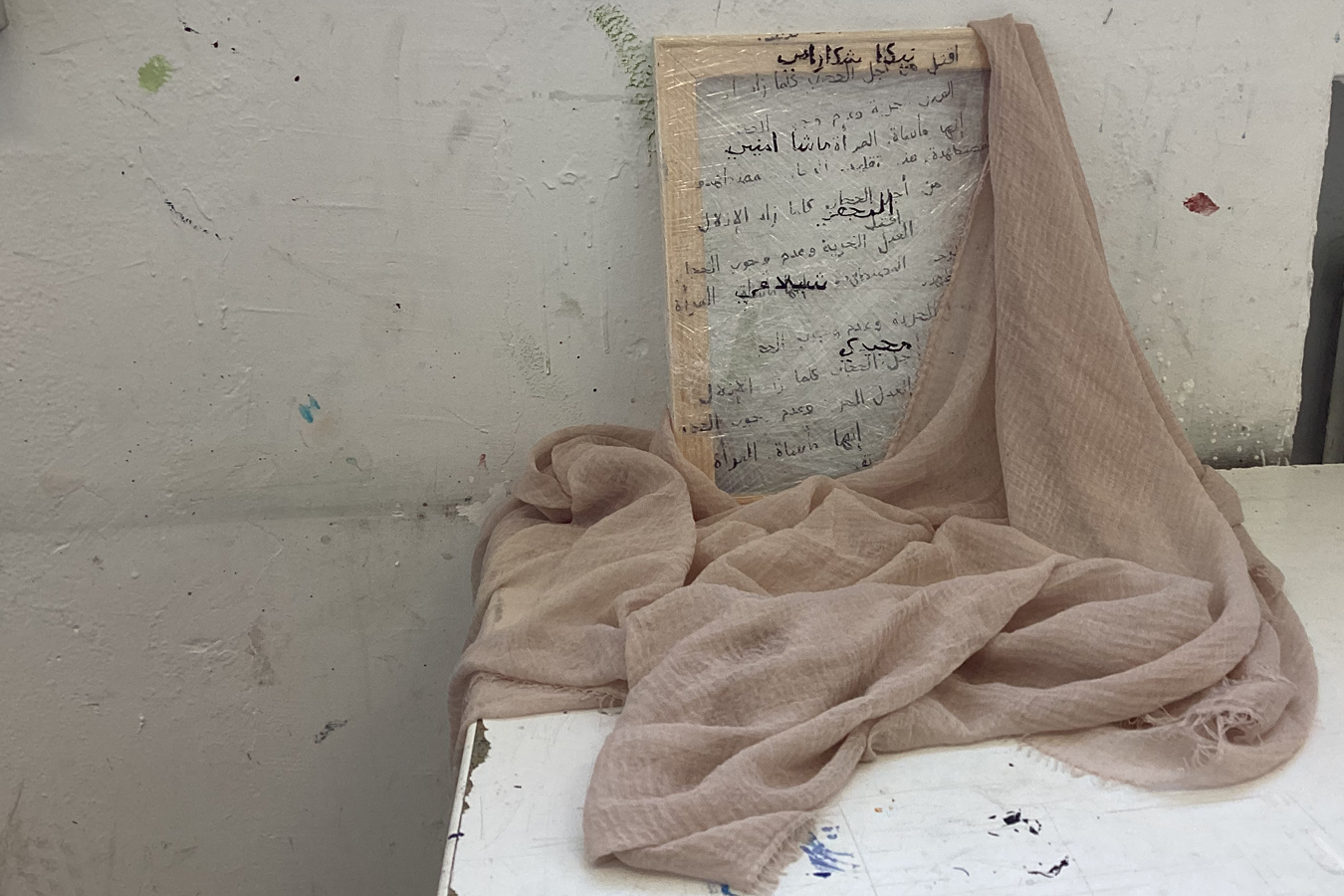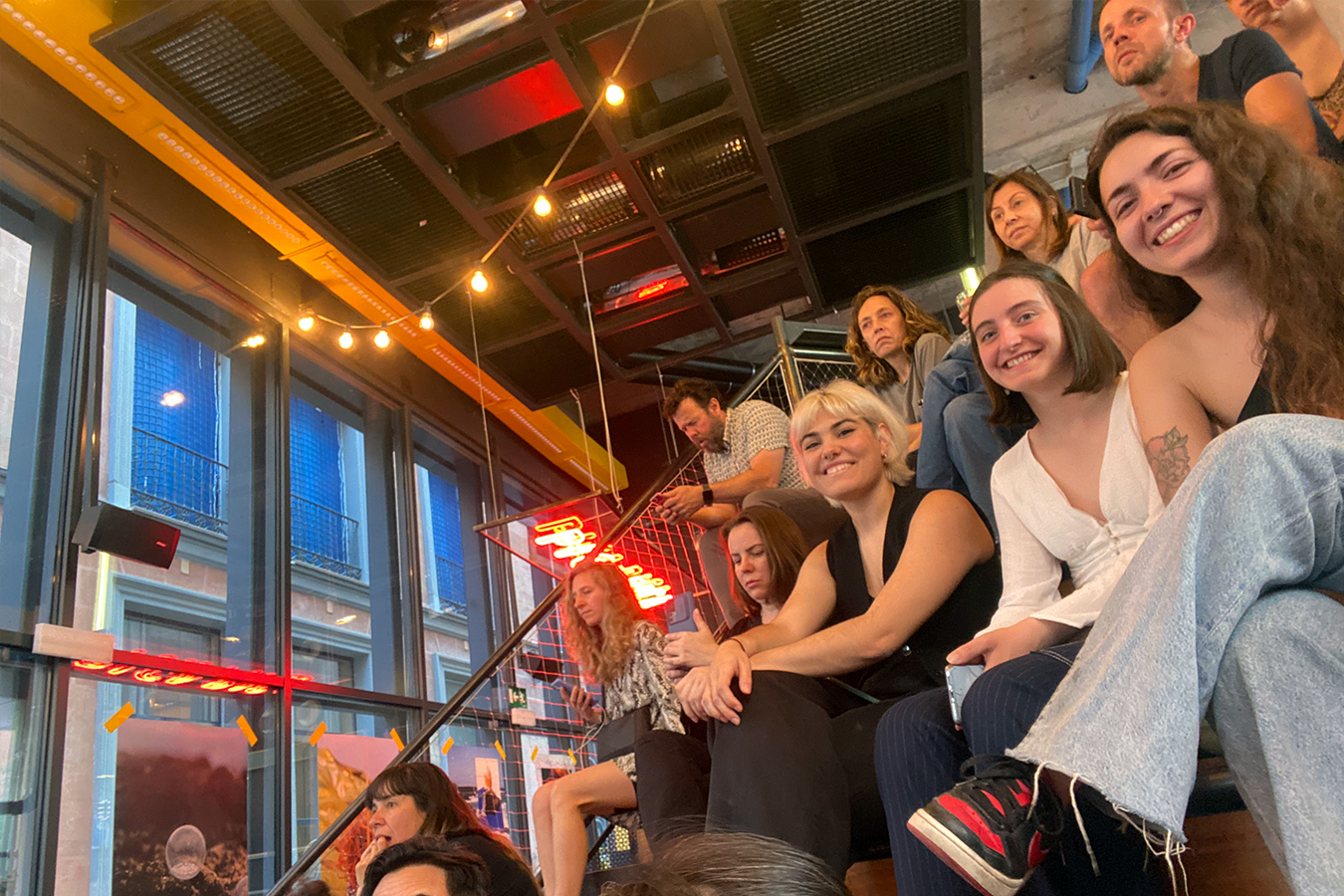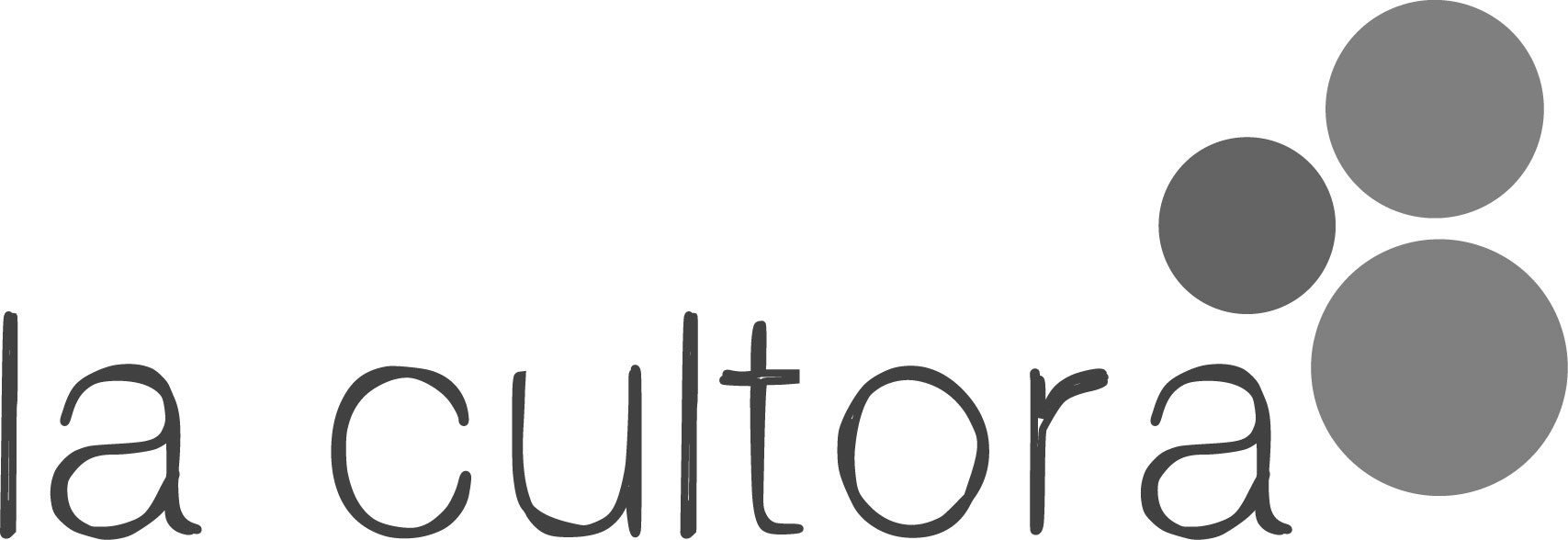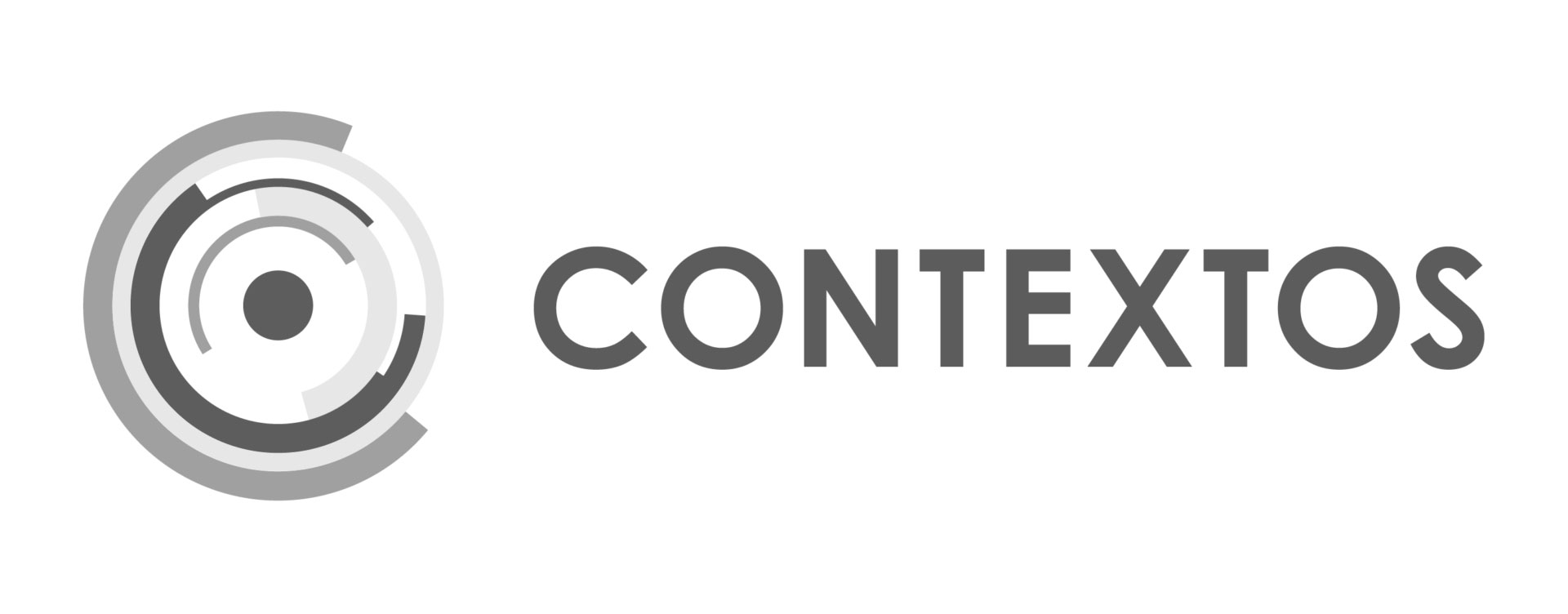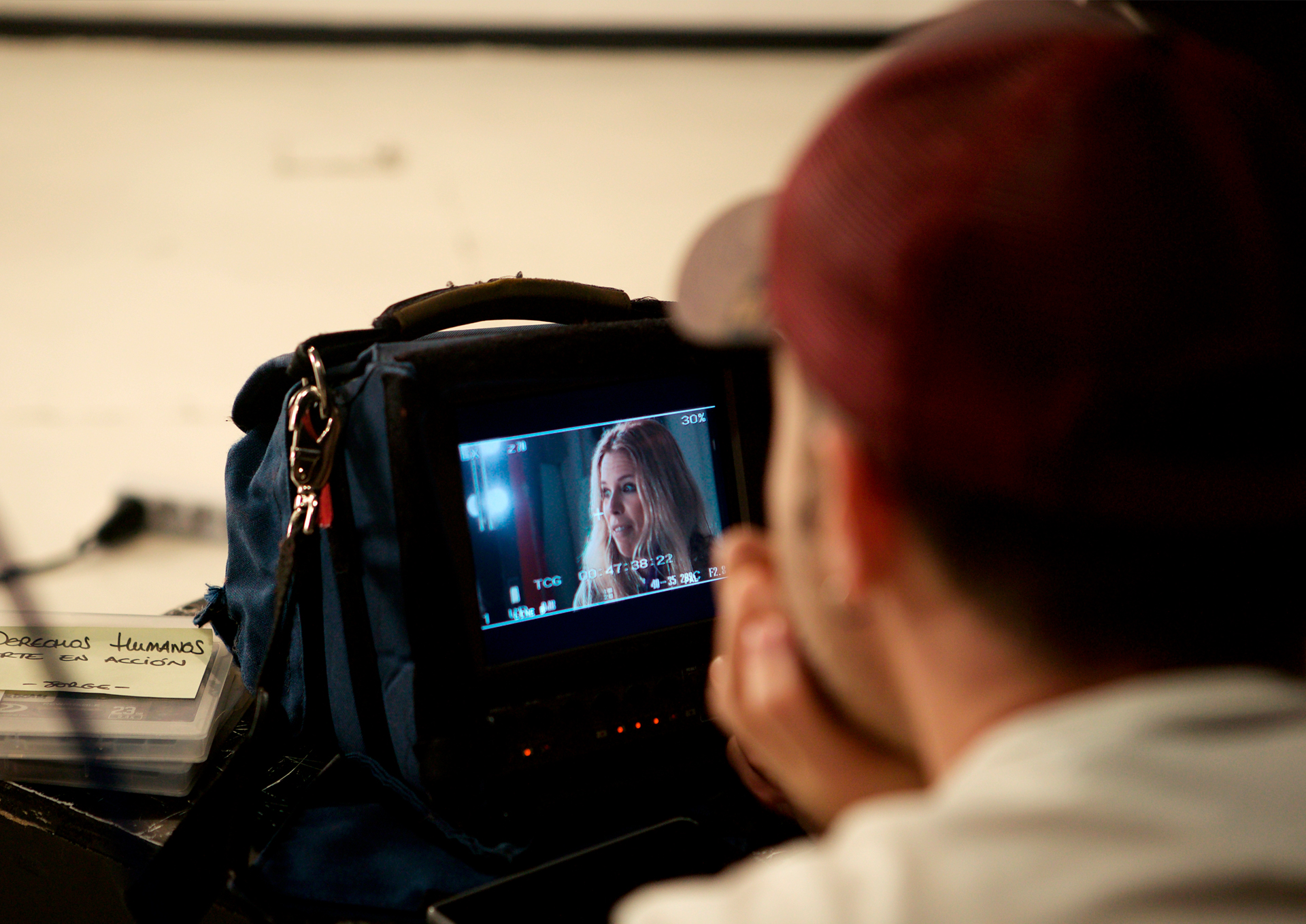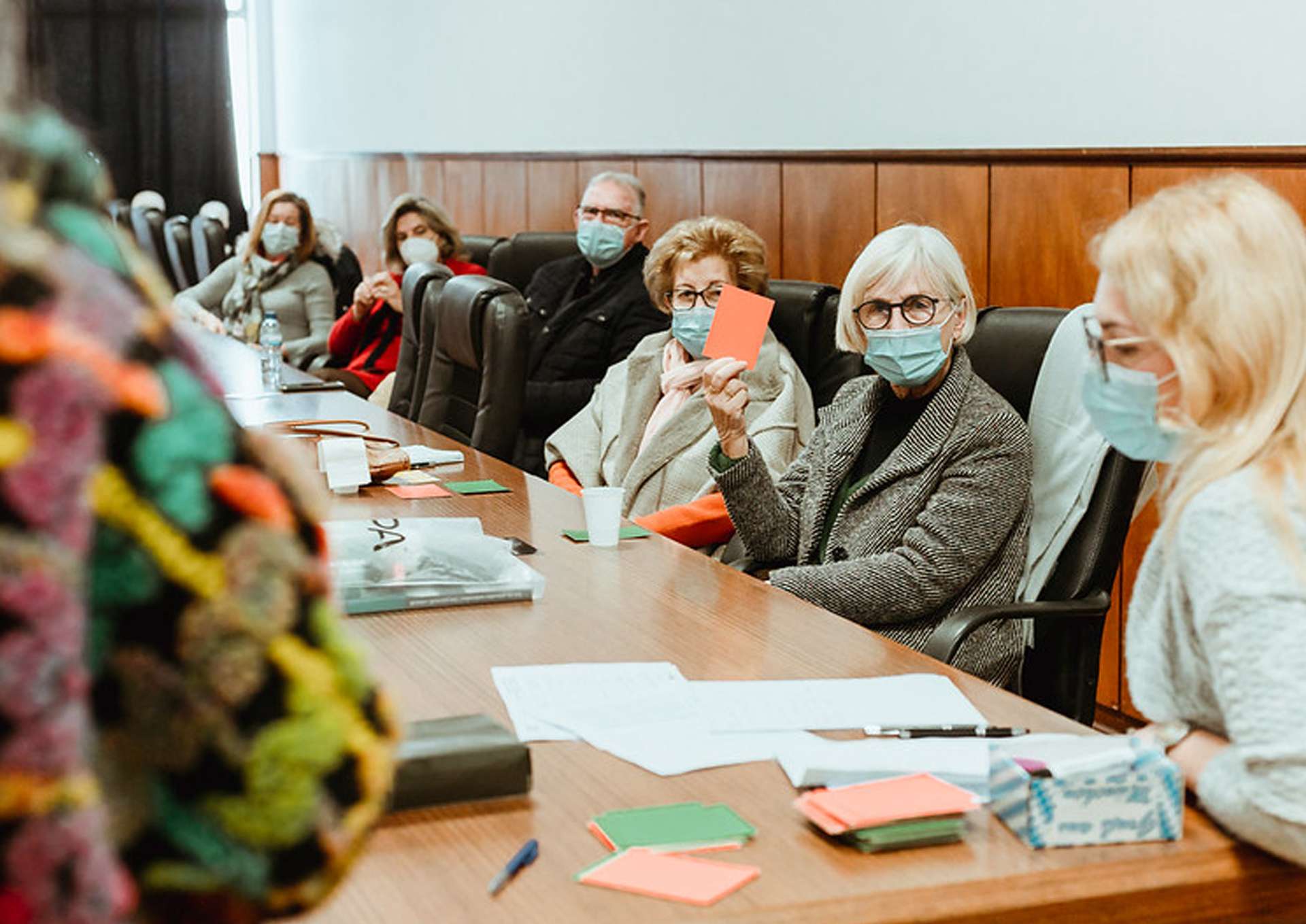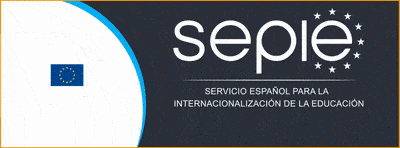Human rights education through creativity and artistic narratives
Training tools and working methodologies for educators. From the perspective of the power of arts and culture as a channel for the visibility of Human Rights and the values of the European Union.
Spain, Austria and Portugal

Human rights education through creativity and artistic narratives
Training tools and working methodologies for educators. From the perspective of the power of arts and culture as a channel for the visibility of Human Rights and the values of the European Union.
Spain, Austria and Portugal

Erasmus + program
Erasmus + program
Objectives
Educator’s manual “The aim is to foster citizens’ understanding of their fundamental rights, of Europe’s common values and of our common cultural wealth, thus promoting democratic participation across the Union in the unpredictable post-COVID context.
Deliverables
Toolkit
Descarga en español | English download | Baixar em portugues | Download auf Deutsch
Educator’s Guide
Descarga en español | English download | Baixar em portugues | Download auf Deutsch
Logbook
Descarga en español | English download | Baixar em portugues | Download auf Deutsch
Outcomes
To enhance democratic education through the use of art-based narratives and creativity as an attractive means to spread values across borders.
To stimulate lifelong learning on issues related to human rights and common European values at local level and to provide socio-cultural skills that enable greater participation of citizens in democratic debate and decision-making.
Objectives
Educator’s manual “The aim is to foster citizens’ understanding of their fundamental rights, of Europe’s common values and of our common cultural wealth, thus promoting democratic participation across the Union in the unpredictable post-COVID context.
Deliverables
Toolkit
Descarga en español | English download | Baixar em portugues | Download auf Deutsch
Educator’s Guide
Descarga en español | English download | Baixar em portugues
Logbook
Descarga en español | English download | Baixar em portugues | Download auf Deutsch
Outcomes
To enhance democratic education through the use of art-based narratives and creativity as an attractive means to spread values across borders.
To stimulate lifelong learning on issues related to human rights and common European values at local level and to provide socio-cultural skills that enable greater participation of citizens in democratic debate and decision-making.
Three visions and perspectives
The EducArts! methodology improves democratic education through the use of narratives based on art and creativity as an attractive medium to spread values beyond borders. EducArts! bases its methodological proposal on three fundamental pillars:
· What we don’t know cannot be part of us:
looking at Human Values
· What we don’t use disappears, it doesn’t exist:
looking at Art, Culture and Creativity
· What grows, grows from within:
From people to action: looking at Human Being
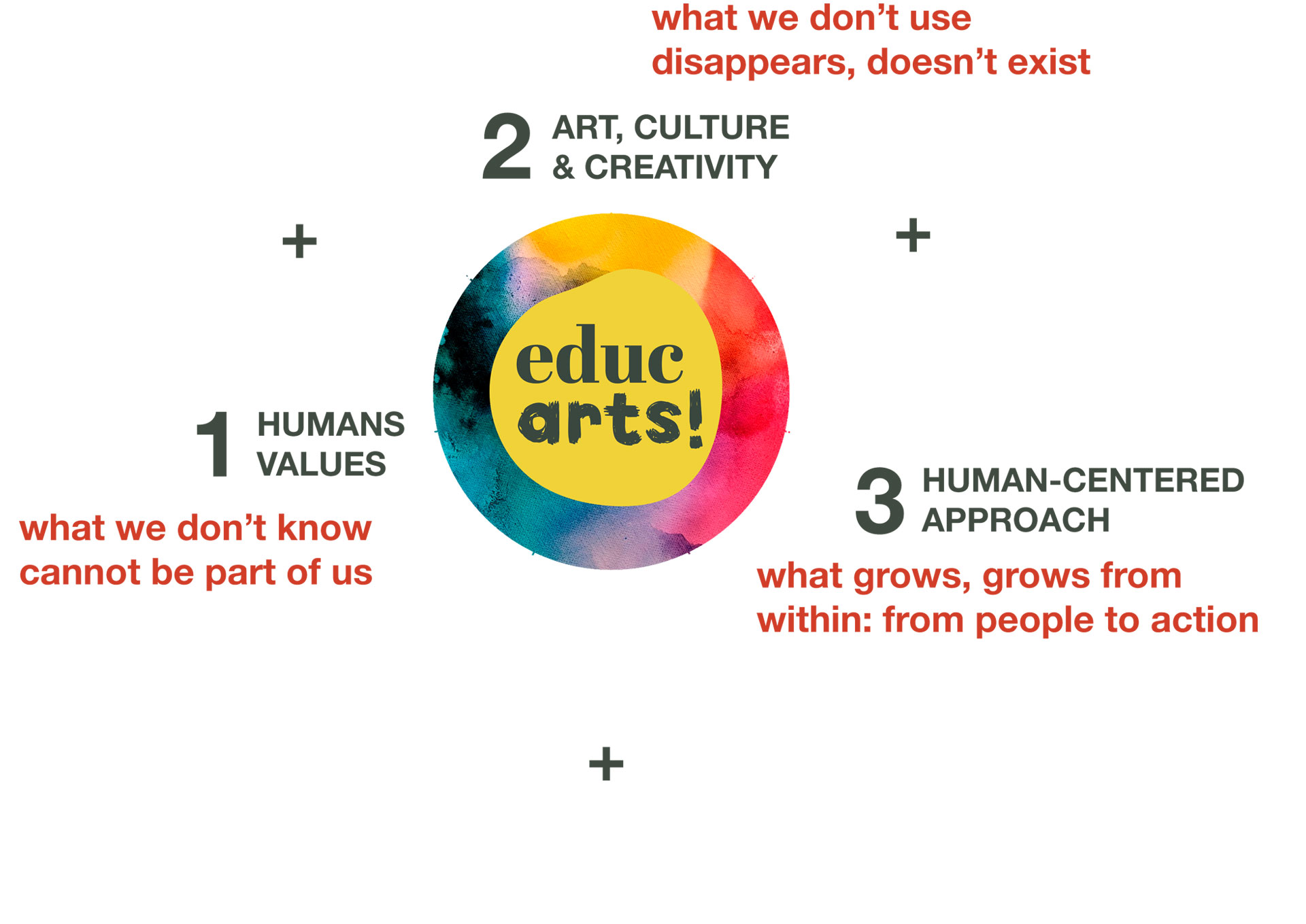
Three visions and perspectives
The EducArts! methodology improves democratic education through the use of narratives based on art and creativity as an attractive medium to spread values beyond borders. EducArts! bases its methodological proposal on three fundamental pillars:
· What we don’t know cannot be part of us:
looking at Human Values
· What we don’t use disappears, it doesn’t exist:
looking at Art, Culture and Creativity
· What grows, grows from within:
From people to action: looking at Human Being

Seven ArtScenarios
ArtScenarios involve various fields of action: observe, share, analyze, express, transform, design, and transcend. This allows the educator to work in a learning situation through a multitude of activities that relate rights and values to arts and creativity. It is the educator’s choice how many learning situations to address (one or several) according to the educational objectives
Stage 2
ArtScenarios involve various fields of action: observe, share, analyze, express, transform, design, and transcend. This allows the educator to work in a learning situation through a multitude of activities that relate rights and values to arts and creativity. It is the educator’s choice how many learning situations to address (one or several) according to the educational objectives
Learning situations
EducArts! considers essential the implementation of pedagogical proposals that, based on the interest of citizens, allow them to build knowledge with autonomy and creativity from their own learning and experiences. Learning situations represent an effective tool to integrate knowledge through meaningful and relevant tasks and activities to solve problems creatively and cooperatively, reinforcing self-esteem, autonomy, reflection and responsibility.
The educator knows the philosophy behind the activities and the key points to take into account (EducArts! Perspectives), starts from concrete and structured proposals with pre-set objectives and suggested artistic actions and applications (ArtScenarios) to create adapted educational spaces that are coherent with the environment and the students (Learning Situations)
Learning situations
EducArts! considers essential the implementation of pedagogical proposals that, based on the interest of citizens, allow them to build knowledge with autonomy and creativity from their own learning and experiences. Learning situations represent an effective tool to integrate knowledge through meaningful and relevant tasks and activities to solve problems creatively and cooperatively, reinforcing self-esteem, autonomy, reflection and responsibility.
The educator knows the philosophy behind the activities and the key points to take into account (EducArts! Perspectives), starts from concrete and structured proposals with pre-set objectives and suggested artistic actions and applications (ArtScenarios) to create adapted educational spaces that are coherent with the environment and the students (Learning Situations)
The co-creators
The co-creators
La Cultora
– Bottom up projects
– Culture
– Human rights
– Knowledge transfer
La Cultora Platform
www.lacultora.org

Contextos
– Communication
– Social, artistic and educational projects
– Social empowerment
Contextos Cooperativa para o Desenvolvimento e Coesão Social CRL
www.contextos.org.pt
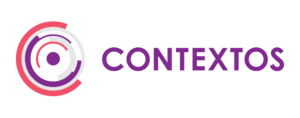
Sapere Aude
– Citizen participation
– Human Rights Policy and Education
– Training tools
Sapere Aude – Verein zur Förderung der Politischen Bildung
www.sapereaude.at

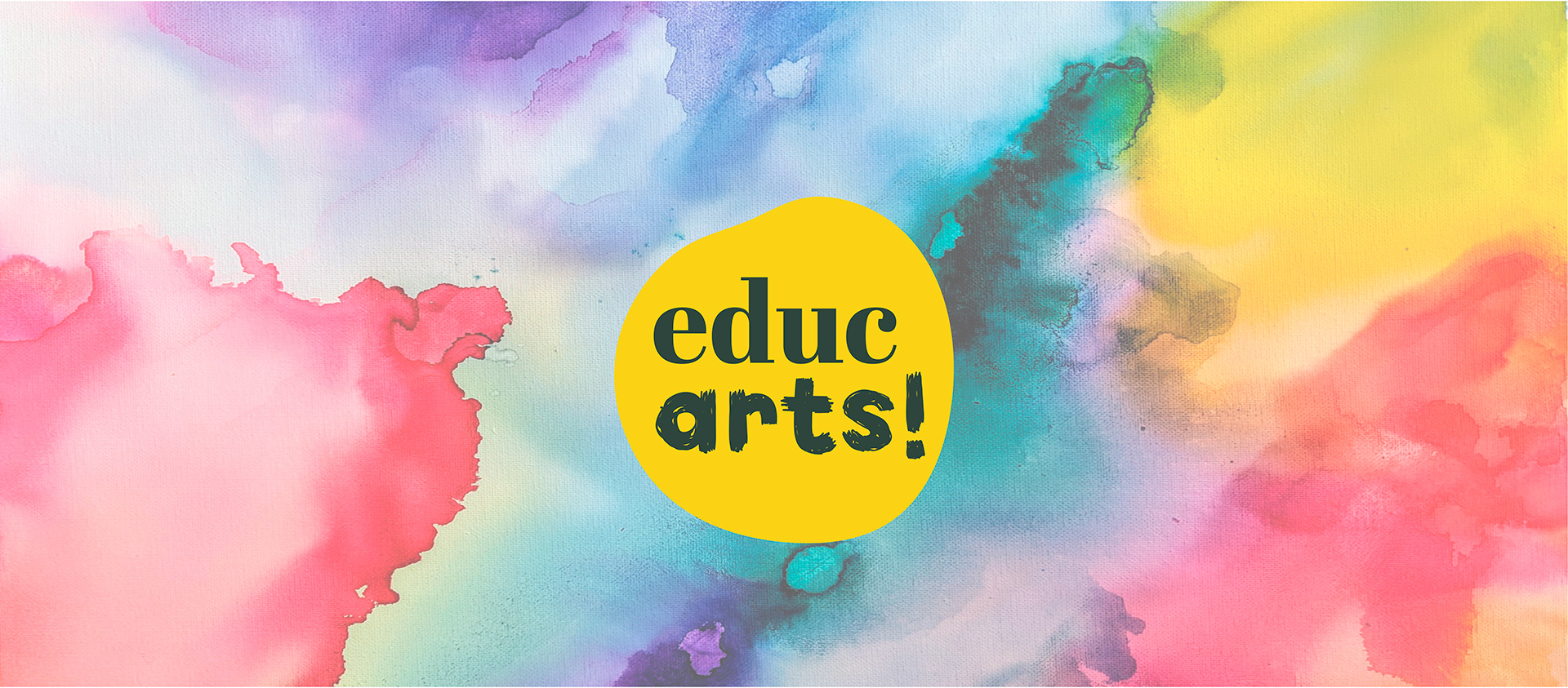

“The project “EducArts!” is co-financed by the Erasmus+ program of the European Union. The content of this publication is the sole responsibility of the author and neither the European Commission nor the Spanish Service for the Internationalization of Education (SEPIE) are responsible for the use that can be made from the information published here.

